The third age of Jagex
Acting CEO and COO Phil Mansell tells us what new ownership means for the RuneScape maker
The story of Jagex can really be split into three chapters.
The first is its humble beginnings 17 years ago, led by founders Paul and Andrew Gower, which saw the creation of the MMO RuneScape and the company's rapid growth.
Then the second age, which witnessed the arrival of the venture capitalists and the company's ambitious and expensive efforts to find their next major game. This is an era that did not go to plan. Major projects were invested in and cancelled (the most high-profile being Transformers Universe although there were others behind-the-scenes, too). RuneScape was losing users and the VCs were soon eager to get out. Jagex cut back its projects and re-focused on RuneScape to get back to profitable ways, before finally selling to Chinese investors.
Thus begins chapter three. One that sees Jagex under new leadership in the form of Phil Mansell, with a new owner in Fukong Interactive Entertainment, and with newly refurbished offices.
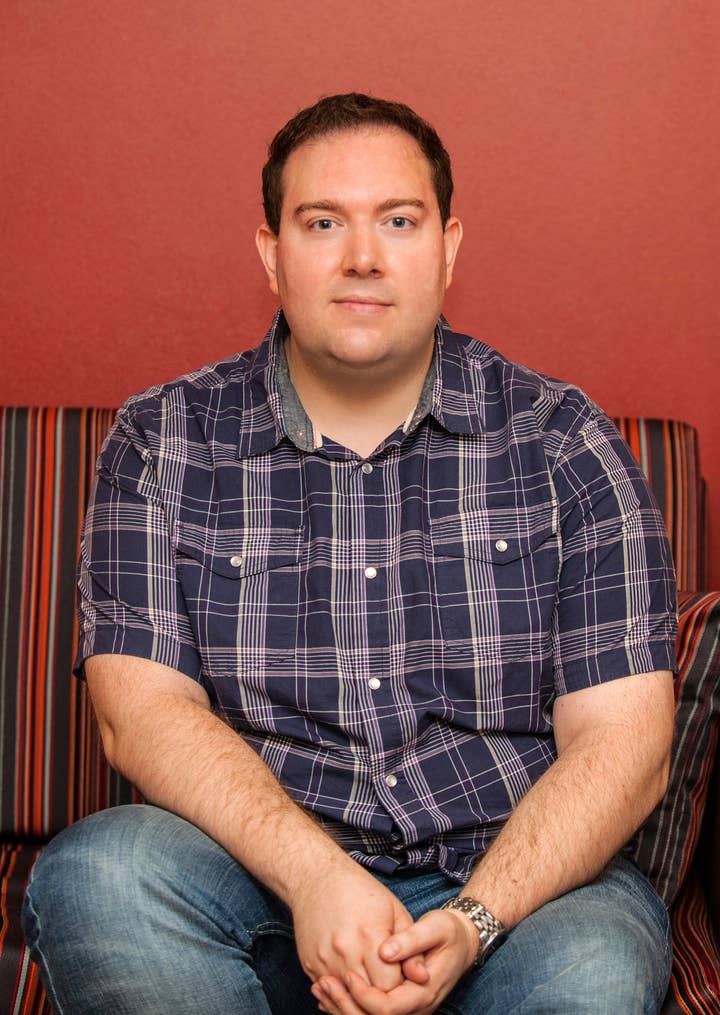
"I get asked quite a lot: 'You were bought by a big Chinese company. Are you ok?' But it has actually been a... well, relief sounds a bit rude. It's been empowering," begins Mansell.
"[Fukong] want us to grow, of course, and they're being supportive. But they are not looking for some crazy, transformative, risky things. They want us to focus on what we're good at. They've looked at RuneScape and said you can do more with that. Can you make more games? Yeah, we can. Can we work on multiple platforms? Yes. It is a measured approach and the right things to be doing. I feel we are in a good place now. Towards the end of that second age, the VCs were like: 'Okay, we need to sell, we want to get out'. When you go through a period where, as a business, you are getting ready to be sold, that does place constraints on what you can do. It means we have to tighten things down and be careful.
"You could end up sold to a big strategic buyer, at which point you get shredded and the bits they like they keep. Or maybe you can get bought by a private equity company, and again you will be there for a reconstruction. That hasn't happened. [Fukong] is building a gaming group and we are going to be the hub of the Western side of that.
"The fact that we are not just a developer or a publisher means we have everything under one roof. That makes us a very good HQ in the West to be built upon.
"Certainly, when we were being courted by several potential buyers a couple of years ago, I am very happy with how it has turned out. I didn't imagine then that it would end up being as good as it has ended up.
"You might expect me to say that sort of thing. But at the same time, if I was lying, we wouldn't have refurbished the office, we wouldn't have added two new games teams, and we wouldn't be going around looking at interesting, complementary ventures."
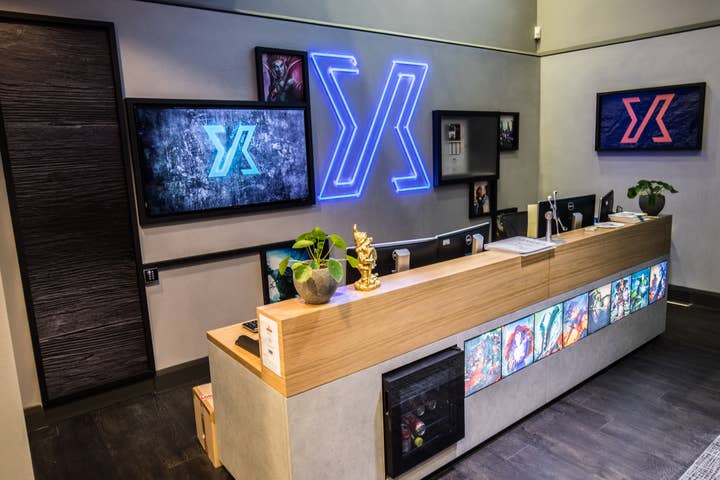
Those 'complementary ventures' basically refers to Jagex's objective to acquire new companies.
"We have a lot of the fundamentals," explains Mansell. "We have a large, sustainable game, which means we don't need a hit every year. We have a strong evergreen product.
"My first job was at Bullfrog, just after the EA acquisition, and I saw what happens when takeovers are not done sympathetically"
"And on top of that, we have everything under one roof. So anyone we choose to buy, or team up with, we can support on an operational level. A lot of our audience are in North America, not just Europe, so we can access a large pool of players. There is a lot of potential, and that also includes for us at Jagex. We can go further than North America and Europe. We can go onto mobile. We can add new games within the RuneScape franchise. We can create new IP... all supported by a robust underpinning."
He continues: "We want a bigger pipeline of stuff coming through. We want talent and proven success.
"My first job was at Bullfrog, just after the EA acquisition, and I saw what happens when takeovers are not done sympathetically. We are trying to create a group of loosely affiliated, complementary companies. Mobile is a pretty obvious area where we know we need to grow into, and one way to do that is through acquisitions and investments. But, we are also not limiting ourselves there. We will be interested in anything that makes Jagex stronger."
None of this, however, will take away focus from RuneScape. The 16 year-old RPG had a troubled few years, but it's back on track now and has been steadily growing its audience.
"Since joining Jagex, RuneScape has been my thing, most of my time here I've been leading it, but within the wider company there were times where there were big distractions that meant RuneScape was left a little neglected," Mansell explains. "Over the last three or four years, we've established that RuneScape is the most important thing we've got. The IP, the players... it was a case of: 'Let's make this our No.1 focus'."
The company adopts a player-centric approach to RuneScape, which is frankly a term we hear bandied about during every interview we conduct these days. Yet Mansell is desperate to convince us that what Jagex does is much more significant.
"There were times where there were big distractions that meant RuneScape was left a little neglected"
One of the best examples he gives is Old School RuneScape. Back in 2013, Jagex discovered an old back-up tape of the 2007 version of RuneScape. The RPG had been upgraded and changed beyond recognition over the six years and the studio asked fans if they'd be interested to pop back in time to an earlier version of the game. The fans voted yes.
It is easy to dismiss its popularity as something that simply taps into that nostalgia for old-school games, but the fact it is now four years old and still growing every year suggests that there is more to it than that. Gamers are not just getting their nostalgia fix and moving on.
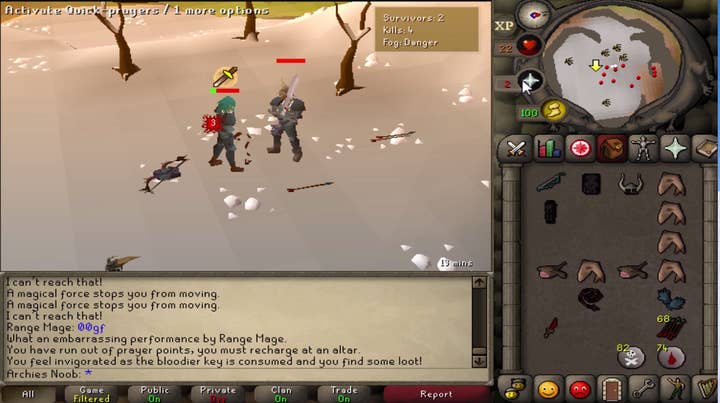
The game has been tweaked a bit, but Jagex's player-driven mentality means any major updates to this Old School version must be approved by the fans - 75% of them, in fact.
"Players throttle its level of modernisation to whatever they're comfortable with," he says. "You need a large majority to get these changes through. Even a fairly small number of traditionalists can say: 'Not this is too fast. I don't want that amount of change'. It takes a lot for them to be convinced. It means that although the game has been alive for four years, it is only incrementally different to what we put out four years ago. It's been fixed up and tweaked, but it doesn't feel like four years have passed. And that's fine, that's what they want.
"We put these ideas in, and then that goes into a poll, and if it passes, then the devs work on it. Some of the ideas we come up with, but a lot of it does come from the players. It's a democratic process.
Old School RuneScape is an unusual proposition. Try pitching a game to a publisher that has 2007 gameplay (and graphics from even earlier) and see how far it gets you. But the fans wanted it, and what's more, it's becoming a significant part of Jagex's business. The firm has even introduced a mode called Deadman, which sees players build up their characters over three months before unleashing them in a player-vs-player battle royale. It's fast becoming a significant eSport in its own right, with ESL hosting live streams and attracting hundreds of thousands of viewers.
This player-driven concept extends to the 'normal' RuneScape game, too. The company is currently changing its content strategy to releasing fewer, larger updates every quarter. Because that's what the fans want. The first big update launches this summer.
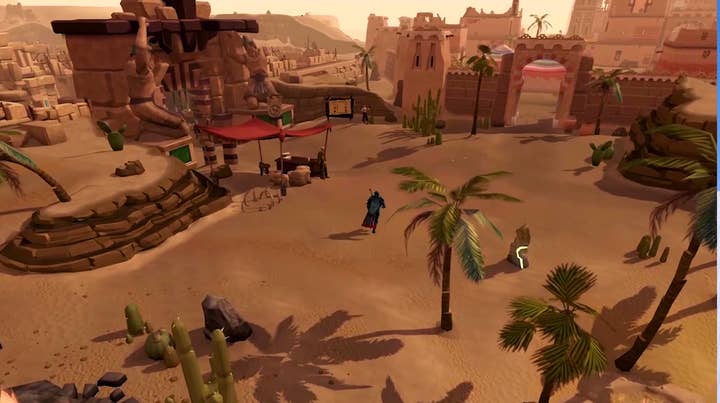
"A lot of studios are operating live services now, and spend all their time talking to their community. But we've been doing it for such a long time that it is deeply ingrained in how it work," Mansell insists. "Compared to others, you might think we take it to extremes. We have Old School RuneScape where literally everything has to be voted on. We encourage all of our developers to be on Twitter and talking to players, to be on the forums... then we have real life events like RuneFest. We have regular player visits, and when we have big content coming up, we fly players in from around the world. That way we get feedback directly.
"We also do qualitative player things. We have a survey every few months, and we have just done a big annual one. Whenever a piece of content goes live, we have a quick turnaround report from our CM team, who tell us immediately what the player reaction has been, what we can improve upon and fix. We then do that again after 24 hours... we are not just updating the game, we are hotfixing and tweaking it goes live.
"Then we do all the data science stuff. We have a very good analytics team who look at player behaviour, who do automated analysis... that sort of thing. You get companies that are very data-orientated, and ones that are very community-orientated. But we have all of it in a comprehensive way, which I think is different and special.
"It's not easy. We put a lot of effort and a lot of money into doing it that way, but it is obviously paying off. Part of the RuneScape renaissance that we've seen over the last two or three years has come from us doubling down on that. Rather than being a soundbite, we actually live and breathe it."
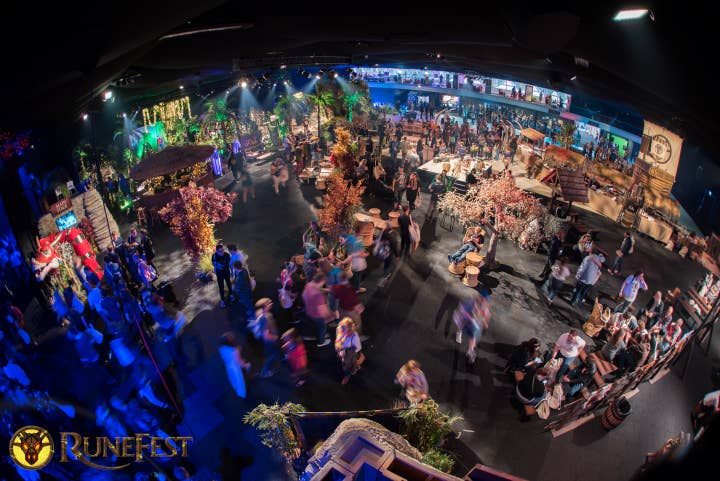
That's not to say it's all about the RuneScape MMO. The company is experimenting with new tech (admittedly using the RuneScape IP), including Amazon's Alexa and VR. The company even has an initiative called TAPP.
"When I think about where I want Jagex to be in five years, I want to have a lot more than just RuneScape and Old School RuneScape"
"It stands for Thursday, All-day, Personal Projects," says Mansell. "As long as it is vaguely relevant to people's jobs, or the company, they get time - every fortnight - to do their own personal project. Sometimes it is self-training, sometimes it is content or features for the current games that they have a burning desire to do. Or it's pitching new ideas or prototypes. And it is not just games, we have web-development and billing-development departments. We have had cool features like extensions to our forums that have been added, just because it was a personal idea from someone, and they chipped away at it over a few Thursdays. We have a few little prototypes that have been born in this TAPP time."
Developing new concepts is also rewarded. Jagex's chairman at Fukong has set up an initiative where the employees who come up with the two best products every year - regardless of whether they are made or not - will receive an all-expenses paid trip to China for them and their family or team.
Part of this comes from a desire to create new IP, which is a scary prospect for anyone familiar with Jagex's history and the failures experienced during that difficult second age. Yet Mansell believes the firm is better prepared for building new concepts now.
"When I think about where I want Jagex to be in five years, I want to have a lot more than just RuneScape and Old School RuneScape," he says. "We can do that both within the franchise and also create new things. Whereas Jagex in previous years hasn't been so successful with new IP, I think it's because it hasn't used this player-driven philosophy. You can use this to make new games. You can source ideas, you can test interest from gamers early, you can get them involved in making it... It isn't our intention to beaver away for four years, create something massive, then only find out at the last minute if anybody cares. We will want the game to be live from the get-go... that might not be literally possible, but from a philosophical stand-point, if we are listening to our players, if we are watching their behaviour through the data, then we are going to have a big advantage."
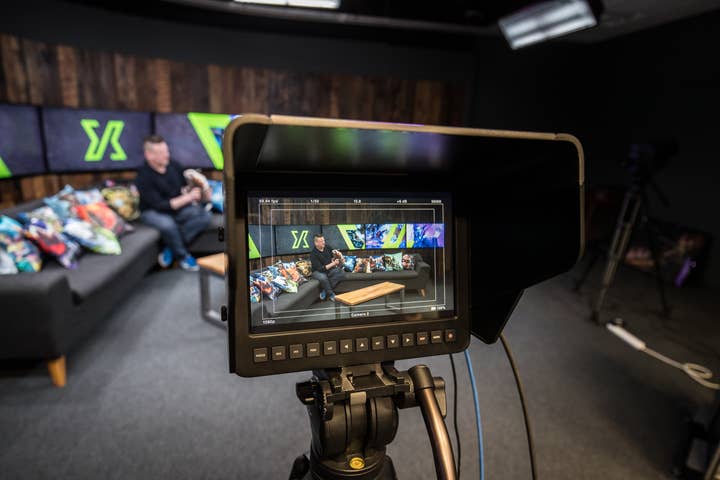
The few hours we spent in Jagex's refurbished HQ suggests this is a firm in high spirits. There was certainly no evidence that it is living in fear of its new Chinese overlords. Nothing is certain in this business, a bad acquisition or two could change the narrative in an instant, but for now at least, the third age of Jagex has got off to a strong start.
"We hope that the refurbishment and all the stuff around that shows the positive impact of the ownership change," Mansell concludes. "Also, Jagex has been quite quiet for a few years, because it has been going through a sales process and consolidating itself. We are going to build back up the talent base, we are going to recruit more people, we want to be better neighbours inside of the games industry. We've done some interesting things, we have stories and learnings that we can share, and we can also be a good citizen inside the industry to make it an even cooler place to work for everyone."
